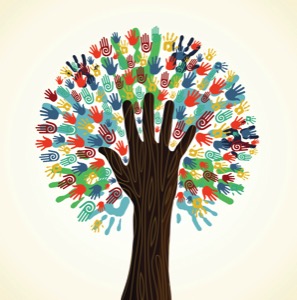
For me, National Recovery Month is a reminder of how far we’ve come, both therapeutically and in society, regarding the treatment of addiction and mental health conditions. This month especially, we get to celebrate those who are in recovery and increase awareness for those who are still suffering. Even in the 26 years since the Substance Abuse and Mental Health Services Administration (SAMHSA) started sponsoring National Recovery Month in 1989, we’ve seen dramatic changes in the way that people are being treated – and are recovering – from conditions that have historically been misunderstood and addressed separately.
Early on in my career, I specifically recall the fragmented process of “helping” the addicted person who experienced mental health challenges. The chasm between treatment agencies was vast and deep. Self-help groups in the community held biases against recovery addicts on mood-stabilizing medications. Mental health agencies were only funded to treat mental health conditions, not addiction. Agencies that treated addiction were not staffed to manage the mental health issues that required professional care and treatment.
Many individuals were quick to lose hope due to being passed off from one system to the next. It was typical to send a person across town for addiction issues and then expect them to return the same day for mental health treatment. Needless to say, many were lost in a health care system that was not designed to meet the needs of the individuals with co-occurring disorders in one system of care.
Today, a person can receive comprehensive treatment along a continuum of care from the first days of detoxification and stabilization to residential treatment – and then they can return to the community while participating in outpatient services. The benefits of having this uninterrupted continuation of service are many.
We’ve gotten to a place where we can treat the whole person. You are not your diagnosis, and you don’t have to pinball between systems to get the care you need. At Foundations, preparing someone for a new life in recovery involves holistic activities that activate the mind and body, process groups that help patients connect and encourage others in treatment, family therapy that repairs relationships wherever possible, and an emphasis on restoring one’s physical, mental, emotional and spiritual health. It’s so much greater than detox or therapy appointments. It’s preparation and equipping for sustainable life change.
Treatment has come a very long way since the early 1750s when Native American tribe members formed sobriety circles encouraging others to abstain and reject alcohol to return to the traditional ancestral ways. Their wisdom and courage recognized the devastating impact of alcohol on their society. National Recovery Month places that same focus and intention to raise awareness and guide individuals to a life of balance and authenticity. And these days, we continue to have more to celebrate about all the innovations in treatment. More and more treatment professionals are focusing on partnering with recovering persons to restore balance to the common life areas of health, home, purpose and community. As a society with epidemic proportions of addiction, we must turn our attention to the excellent systems of care that are now available to individuals seeking treatment.
So I hope you will appreciate National Recovery Month like I do. It’s another signpost on the road that shows us that we have learned more – and what we are doing is working. Prevention matters, and treatment is effective. People do recover from addiction to alcohol and other drugs. People do recover from mental health conditions and manage their symptoms well.
National Recovery Month spreads a very positive message promoting the benefits of balanced living and recovery. Are you a person who needs that message? If not, do you know someone who does? Help is here for you to live a full life in recovery, and you can start today.
Patricia Bathurst, MFT is the director of Foundations San Diego, an outpatient recovery facility located in Hillcrest at 3930 Fourth Ave., Suite 301, San Diego, CA 92103. Ms. Bathurst is a certified advanced addiction counselor, as well as a licensed marriage and family therapist. Questions for Pat? Contact Foundations San Diego at 619-321-1575.










